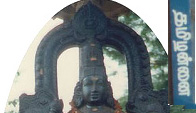
 |
||
| Home Culture Lessons > I 1 2 3 4 5 6 II 1 2 3 4 5 6 III 1 2 3 4 5 6 IV 1 2 3 4 5 6 V 1 2 3 4 5 6 VI 1 2 3 4 5 6 Select Unit | ||
|
| ||
Influence of Sanskrit in TamilTamil is believed to have borrowed words and phrases from the Sanskrit language from the sixth century A.D. onwards when structured temples and imitating the traditions of the North started to emerge in Kanchipuram and Mahapalipuram, two major centers of Tamil civilization. Until then, Tamil experienced its own indigenous qualities and characteristics, which are evident from the most celebrated Sangam classic literatures which are dated before the sixth century A.D. The celebrated epics such as Cilappathikaram, Manimekalai, the many compilations of poems such as Thirukkural, Purananuru, Akananuru, Kalittokai, the grammars of Tokappiyam, Nannul and their commentaries from Neminatham, Swaminatham etc., as well as a host of others are considred to be the invaluable treasures of the Tamil language and culture. This is because they were composed in the Tamil land for the Tamils without any influence from other languages and cultures. However, the growth of religious sects, namely Vaishnavism and Saivism, among the Tamils along with the Agamic traditions of Temple culture made a considerable impact upon the Tamil language and culture. Many words from the Sanskrit language became part of the literary langauge first, and later the spoken language. The equilvalent Tamil words became less popular, and even forgotten by many Tamil speakers. A new style of the Tamil language called Manippravala, a mixture of vernacular language and Sanskrit language, came into existence in the South Indian languages Malayalam, Kannada, Telugu and Tamil. This style was used in Tamil widely until the end of ninteenth century, but started to weaken due to enormous pressures from the Tamil purism movement. Despite this, many Sanskrit words are still current in the language. Following are some of the pairs where the Sanskrit counter parts are used in speech more commonly than their Tamil equivalents. கோபம் and சினம் 'anger' சந்தோஷம் and மகிழ்ச்சி 'happiness' சௌக்கியம் and நலம் 'health' வருத்தம் and உளைச்சல் 'sadness' மனம் and உள்ளம் 'mind' யோசனை and எண்ணம் 'thought' வெட்கம் and நாணம் 'shame' கஷ்டம் and அல்லல் 'suffer from difficulties' ரொம்ப and மிக 'much' நமஸ்காரம் and வணக்கம் 'greetings' The proponents of the 'Pure Tamil movement' have been attempting to promote the use of pure Tamil words instead of the Sanskrit equivalents in speech as well as writing, but without tremendous success so far. Using pure Tamil and avoiding the Sanskrit words in one's speech or writing generally results an artificial speech which is difficult for most to understand. To cite an example, the sentence வாழ்க்கையில் சந்தோஷமே இல்லாமல் கோபமும் வருத்தமுமாக ரொம்பவும் கஷ்டப்படுகிறேன் is more natural than its pure Tamil equilvalent வாழ்க்கையில் மகிழ்ச்சியே இல்லாமல் சினமும் உளைச்சலுமாக மிகவும் அல்லல் படுகிறேன் 'I suffer too much from too much anger and sadness without any happiness in life .' |
|
© South Asia Language Resource Center (SALRC) |